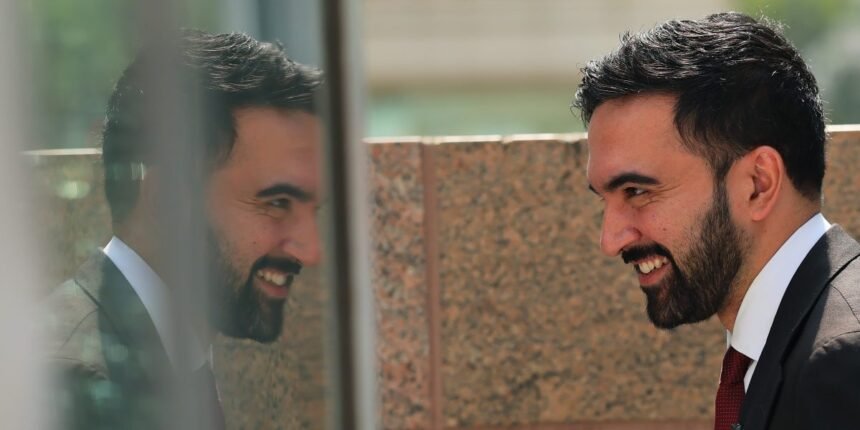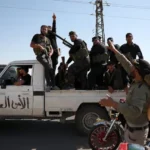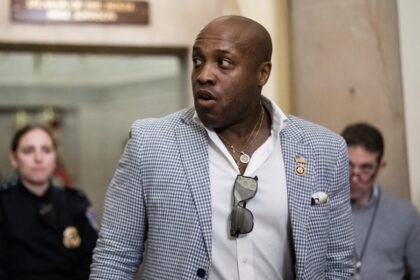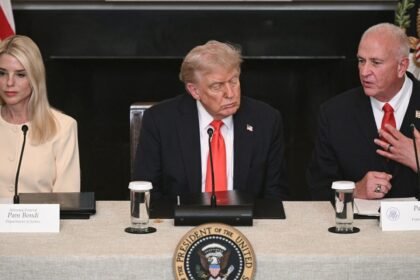The Guardline
Mychal Denzel Smith is the author of Stakes Is High: Life After the American Dream, winner of the Kirkus Prize for Nonfiction.
“I am not running to defund the police,” Zohran Mamdani said in late July, after visiting with the family of the slain police officer Didarul Islam. It was consistent with the stance he’s maintained throughout the New York City mayoral race. His campaign has remained focused on his signature issue—the city’s affordability crisis—and he has not run, in either his successful Democratic primary or the upcoming general election, on a platform of defunding the police.
This fact has not stopped Mamdani’s opponents, chiefly former Governor Andrew Cuomo (whom Mamdani defeated in the primary) and incumbent Mayor Eric Adams (for whom the Trump administration has reportedly dangled job opportunities as incentives to leave the race) from dredging up his past support for the defund movement. In 2020, at the height of the nationwide protests that erupted after the murder of George Floyd, Mamdani posted to social media that the NYPD was “racist, anti-queer and a major threat to public safety,” and that we needed to “#DefundtheNYPD.” At the time, he was running for his current seat in the New York State Assembly.
That he no longer supports defunding the police is not surprising; it has never been a popular position. Even in 2020, when the fervor around Floyd’s murder was its highest, support for reducing police funding only stood at twenty-five percent of the public nationwide; that dropped to fifteen percent by the next year. It would not be savvy to run on such a platform at this time.
Mamdani’s opponents understand that defund is toxic, which is why they want to tie the mayoral frontrunner to his previous stance. As the Cuomo and Adams campaigns struggle to gain momentum, while Mamdani continues to max out his campaign contributions, they need Mamdani to appear too extreme for the general public. Cuomo has called Mamdani’s previously expressed views around policing “dangerous, literally dangerous.” Mamdani, backing away from those views, has called himself “a candidate who is not fixed in time.”
It would be easy to become cynical about Mamdani’s backtracking, to see it as simply another example of a U.S. politician muting voices of dissent to gain foothold within electoral politics. And it is that. Mamdani should not have to back off from his previous — and well-founded — position to make himself electable. Police budgets are the only consistent growth areas in many local budgets, and their constant inflation does siphon resources from other important areas of civic life, while also creating a police state that terrorizes non-white, poor, and queer citizens. Reducing police budgets and allocating those dollars elsewhere is a modest request. Mamdani should be free to say as much.
He is not, though, if his goal is to be elected mayor, since there is still no wide-reaching support for defunding the police as a policy. But if you look at his actual platform (not what Cuomo and Adams would have you believe is his platform), you’ll find that his goals for public safety still align with the goals of defunding the police—just without the defund part.
Reducing police budgets and allocating those dollars elsewhere is a modest request. Mamdani should be free to say as much.
While his detailed platform does say “Police have a critical role to play” with respect to public safety, his proposals do not mention much of a role. There are sections on mental health, gun violence, hate violence, and victims’ services that outline things like violence interrupters, restorative justice models in schools, creating crisis residences, and other interventions that do not involve the police at all. The need to bolster those resources has been a major part of the message of the defund movement from the start: police are tasked with solving social problems that they are not equipped to handle, so instead of increasing their budgets and the purview of their duties, allocate those resources to more effective ideas. This model has shown significant results in places like Baltimore and Chicago, which have in the past year experienced historic drops in violent crime. It’s also been conveniently overlooked by the defund movement’s critics.
The rhetoric may not be there, but the substance of what the defund the police movement is after is alive in the Mamdani campaign. It would be nice if he were in position to run explicitly on that message, but he’s not in the world as currently constructed. However, even on this, I’m not ready to give myself fully over to cynicism. Think of one of Mamdani’s other controversial positions—his unwavering support of Palestinians, and an end to the genocide and apartheid to which Israel has subjected them for nearly eighty years. Even five years ago, holding such a position publicly might have barred him from getting elected to any office; now, it is a major factor in his appeal.
That would not have happened without the decades of movement building that preceded this moment, and that is the main takeaway here for the defund movement: Present Mamdani may not be able to run a successful campaign now by calling for defunding the police, but push hard enough, and a future Mamdani absolutely will.











